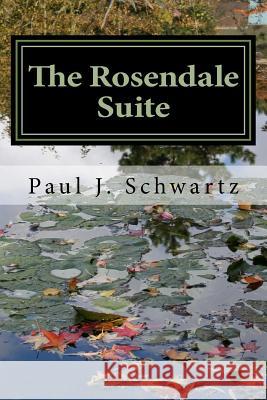The Rosendale Suite » książka
The Rosendale Suite
ISBN-13: 9781512209846 / Angielski / Miękka / 2015 / 414 str.
The Rosendale Suite follows four major episodes in the life of an American artist, Richard Rosendale, who left his home in Milwaukee in the early 1930s to study art at Paris's Ecole des Beaux-Arts. The first episode takes place in 1936, when Richard is a struggling young artist, the second in 1943 when he and his wife Martine are active in the French Resistance Movement during World War II, the third in 1968 when both of them, who are now faculty members in an American university, return to France and experience the upheavals of May 1968 in France, and the fourth in 1985, when seventy year-old Richard spends a sabbatical year with Martine in the southwest of France and becomes involved in a murder investigation. Throughout the four episodes, they connect and reconnect with other characters, some fictional, some historical - writer Samuel Beckett and theatre actor and director Jean-Louis Barrault play major roles in the novel; other historical figures like Andre Malraux, Jean-Luc Godard, and Charles de Gaulle appear briefly. Richard, Martine, and their friends experience, reflect, and to some extent help shape the historic, artistic, political, and cultural landscape of France over the fifty years from the 1930s to the 1980s. The Rosendale Suite references both explicitly and implicitly major writers of the twentieth century - there are, for example, discernable textual influences of Samuel Beckett, Andre Malraux, and Georges Perec. Two of the episodes - 1943 and 1968 - are strongly rooted in history; they provide detailed and accurate descriptions, on one hand of life in France during the German occupation, and on the other of the origins and evolution of the political unrest which in May 1968 nearly overthrew the de Gaulle government. The novel plays with and never fully resolves the question of its own sources. The early pages of 1936 introduce a major character in that episode, a journalist and aspiring writer named Andre Crosatier (who later changes his name to Andre Patri). Andre (based on a historical figure actually named Gilles Patri) is only marginally present in the 1943 episode, and completely absent from 1968. But he resurfaces strongly in 1985, and several passages throughout the novel suggest that he is the original chronicler of Richard Rosendale's adventures. The Rosendale Suite is of course the story of Richard and Martine Rosendale, but for much of the novel, Richard and Martine are secondary to the other characters with whom they interact and to the historic events we see through them. In the 1936 episode, the novel flashes back and forth between Richard's drama, and the story of the much more flamboyant Olivier d'Anglade. In 1943, Richard and Martine are ancillary actors in the Resistance operation, led by Felix Arnaud and Samuel Beckett. In 1968, Richard consciously assumes the role of chronicler of political events, and includes interpretations of them furnished by Jean-Louis Barrault. In 1985, video tapes he has recorded are crucial to the solving of a mystery investigated by Inspector Christobal Pallini. Richard and Martine constantly attract our interest and our sympathy, and they do face perils and crises through which they evolve. But the real focus of the novel is the world with which they interact, and which they at first attempt to dominate, but then increasingly to understand, accept and merely influence."
Zawartość książki może nie spełniać oczekiwań – reklamacje nie obejmują treści, która mogła nie być redakcyjnie ani merytorycznie opracowana.











